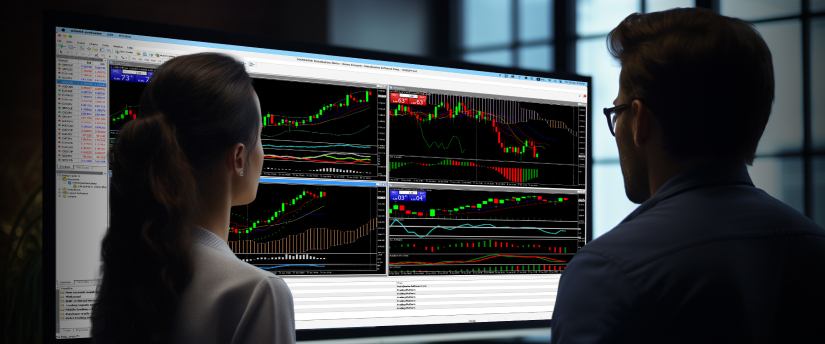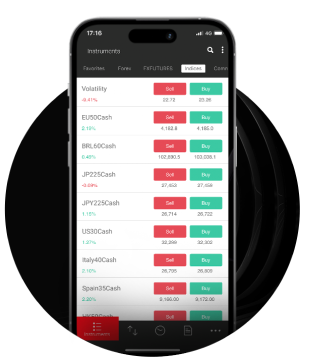Dans l'histoire du trading forex, les histoires de succès rapide sont souvent trop belles pour être vraies. Mais pour certains traders, en particulier ceux qui ont commencé avec des objectifs modestes, le succès est devenu réel. Une histoire qui se distingue est celle de Bill Lipschutz, qui a transformé une activité secondaire en une carrière de plusieurs millions de dollars.
Bill Lipschutz est né en 1956 à Farmingdale, New York. Il a bien réussi à l'école et a obtenu son diplôme du programme d'architecture de Cornell, tout en décrochant également un MBA en finance à la business school de Cornell. Bien qu'il ait eu une passion pour l'architecture, il ne pouvait pas supporter le temps nécessaire avant de pouvoir travailler sur de vrais projets.
À l'école, Bill a pratiqué le trading hypothétique sur papier dans une classe où chaque étudiant commençait avec 100 000 $. À la fin du cours, il avait fait passer cette somme à 29 millions de dollars, même s'il n'y avait pas de limites sur l'effet de levier.
Commencer petit
Bill Lipschutz didn’t plan to become one of the world’s top currency traders. While studying at Cornell University, he inherited $12,000 worth of stocks when his grandmother passed away.
The portfolio wasn’t simple, it included many different stocks, which were held in many different places. The effort of selling these stocks, along with his earlier success in paper trading, most likely motivated him to start trading with real money.
While at Cornell, he started trading using the $12,000 he inherited. He spent a lot of time researching the markets, which became a core part of his trading approach. Research came naturally to Bill. He finished his MBA in 1982, before the internet, so research meant long hours in the library. In comparison, today’s trading research is so much easier.

The big loss
En quatre ans à l'université, Bill a transformé son héritage de 12 000 $ en 250 000 $. Il partage cette histoire dans le livre The New Market Wizards: Conversations with America’s Top Traders. Lorsqu'on lui demande ce qu'il est advenu de ces 250 000 $, Lipschutz fait référence à la « réversion de Granville » en septembre 1982.
Le conseil du célèbre conseiller de marché Joe Granville à ses lecteurs allait à l'encontre de sa position longue, et il a perdu presque la totalité de son compte en moins d'une semaine lorsque de nombreuses personnes se sont positionnées contre lui. Malgré cette perte, Bill n'a pas perdu confiance. Il a considéré cela comme « une erreur majeure », est resté concentré, a continué à s'améliorer et a finalement obtenu un emploi chez Salomon Brothers.
Joining the right broker
La prochaine opportunité de Bill est survenue lorsqu'il a rejoint Salomon Brothers, l'une des banques d'investissement les plus prestigieuses de l'époque. C'est là que Bill a vraiment établi son héritage. Pendant son passage chez Salomon Brothers, il aurait généré pour l'entreprise 300 millions de dollars en une seule année uniquement grâce au trading forex.
Salomon Brothers had an insular culture, known for developing its own traders and teaching them how to succeed. This approach applied to creating a foreign exchange department. While most companies would have hired a seasoned currency trader to lead such an effort, Salomon took a different route. They appointed a senior person from their bond arbitrage department to head the new FX department, even though he had no prior experience in FX.
C'était une grande opportunité pour Lipschutz. Cela lui a donné la chance de se faire remarquer dans un département nouvellement créé, axé sur un marché qu'il connaissait déjà bien. Bill était également la seule personne chez Salomon à avoir de l'expérience en options, un domaine qui commençait tout juste à être largement reconnu dans le monde du trading.
Lipschutz devenant indépendant
En 1990, Bill a quitté Salomon Brothers, où son dernier poste était responsable du Global FX Options Group et du NY FX Trading Desk. Comme mentionné précédemment, il aurait généré plus de 300 millions de dollars la plupart des années pour Salomon Brothers. Après s'être éloigné du trading pendant un court laps de temps, il est revenu sur les marchés en 1995 avec sa propre société, Hathersage Capital Management.
Bill Lipschutz’s trading strategy
The key focus of Lipschutz’s trading strategy is the management of the risk-reward ratio for each trade. He believes that the management of this aspect of trading can determine the success or failure of a trading system. In his opinion, the ideal risk-reward ratio is 3:1, which means that investors should focus on making $3 worth of profit for every $1 of risk. The core principles of his trading strategy include:
1. Trade judgement
Lipschutz souligne l'importance d'évaluer les probabilités de succès ou d'échec avant d'entrer dans une opération. Une opération à haute récompense avec une forte probabilité de perte est souvent pire qu'une opération à faible risque avec une forte probabilité de profit. Ainsi, Lipschutz incite les traders à se concentrer sur l'évaluation du résultat probable d'une configuration de trade.
2. Position sizing
Lipschutz stresses that trade size is also a key part of any trading plan. It helps traders manage their risk and stick to their chosen risk-reward ratio. For example, if a trader has capital of $100,000 and a daily loss limit of $2,000, and they find a trading opportunity with a risk-reward of $1,000 risk to $3,000 reward per lot, they can enter into it with 2 lots and still stay within their risk limit.

3. Stop-loss and take-profit limits
A trader needs to set clear stop-loss and take-profit levels before entering a trade. This would help them stay disciplined and stick to their strategy, regardless of the trade’s outcome. These predefined limits also help traders avoid emotional decision-making, which is often where traders make costly mistakes.
Bill Lipschutz’s advice for beginners
Lipschutz est présenté dans plusieurs livres de trading bien connus, notamment « The Mind of a Trader: Lessons in Trading Strategy from The World’s Leading Traders » d'Alpesh B. Patel et « The New Market Wizards: Conversations with America’s Top Traders » de Jack D. Schwager. Dans ces livres, il partage des conseils précieux pour ceux qui débutent dans le trading, tels que :
1. Never underestimate time as a risk factor
Bill Lipschutz conseille : « Si la plupart des traders apprenaient à rester les mains tranquilles 50 % du temps, ils gagneraient beaucoup plus d'argent. »
When you enter a new trade, it’s not just your money at risk, but also the time and attention that goes into monitoring it. So any trade with a longer time horizon carries greater opportunity costs, both in terms of the capital tied up and the attention it demands.
This makes it harder to manage multiple trades at once. So, a clear interpretation of this advice is to focus on one trade at a time and weigh all the costs related to it.
2. Absorb the pain that comes with the losses
According to Lipschutz, most traders experience beginner’s luck early on, but most give up when the losses start piling up. This is where most trading careers end. His advice to newcomers is to feel the pain of losses without letting it overwhelm you emotionally.
The reason for this is to avoid becoming numb to it. A mind that is numb to pain from financial losses tends to take bigger, reckless risks.

3. Never underestimate externalities
One of the biggest mistakes traders make is ignoring the million factors that can impact the outcome of a trade. External forces, like market sentiment and news events, can easily make or break a trading system.
That’s why it’s essential to account for these factors in your strategy. For example, a trader who relies on analyse fondamentale might still use analyse technique. It might not be their main technique, but there’s no harm in using it.
4. Make trading your passion
Lorsque le trading devient votre passion, vous consacrez plus de temps et d'énergie à apprendre le système qui peut améliorer vos performances en trading.
5. Overconfidence is your biggest enemy
Lipschutz often reflects on his own journey – from rags to riches and back again – as proof that Forex trading has the potential to change your life in either direction.
The outcome depends entirely on your actions. He stresses that overconfidence is one of the most dangerous traits a trader can have as it can lead to reckless decisions. In contrast, consistent discipline forms the foundation for long-term success.
Avertissement :
Ces informations ne sont pas considérées comme un conseil en investissement ou une recommandation d'investissement, mais plutôt comme une communication marketing.
















